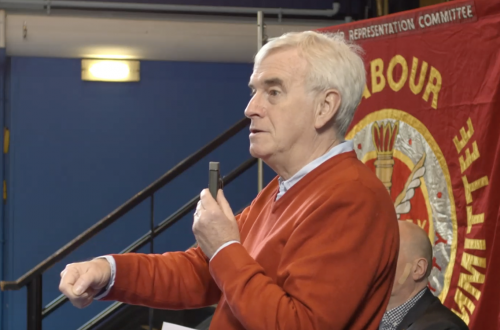The charge levelled by many at Jeremy Corbyn is not that he is anti-Semitic. He himself has said little to draw that damning conclusion. The charge levelled, with evidence increasing by the day, is that he endorses anti-Semites and attends events organised by anti-Semites. The charge levelled, therefore, is he views anti-semitism as insufficiently worrisome, and, at times, views anti-Semites as even praiseworthy – particularly anti-Semites who hide under the cover of anti-Zionism. This is dangerous in itself. Racism, even when couched in terms that may draw your ideological sympathy, merits outright condemnation. Nothing else. This is especially true if your raison d’être is social justice and equality. Instead, opposition to Israeli policies – not in itself anti-Semitic, and at times morally justified – has blinded some people to clear expressions of bigotry. Corbyn suffers from this disabling myopia to a remarkable degree.
Those who defend Corbyn rely on two arguments: firstly, that guilt by association – attending the same event as anti-Semites – is an insufficient base on which to build a critique against him. Secondly, that opposition to Israeli policies doesn’t entail anti-semitism, and consequently those that criticise Corbyn are doing so from a position of bad faith; out of a wish to shield Israel from legitimate criticism or part of a general right-wing agenda. Both arguments are strawmen that rely on a misapprehension of most people’s motives and inattention to their arguments.
Owen Jones – perhaps the most staunch defender of Corbyn in the mainstream media – contends that guilt by association is a fallacious way of critiquing a political figure. I agree. But in his defence of Corbyn, he argues:
…having spent his life attending more meetings and protests than virtually any other MP, he will have encountered and met countless people. I can’t remember people I’ve shared platforms with and met (which has led to many embarrassing moments in my case) and the idea an MP like Corbyn juggling his constituency and campaigning work and meeting the number of people he does will remember is pushing human capabilities to an extreme degree.
The problem, though, is the main charge levelled at Corbyn isn’t who he associates with; the main charge is who he endorses and publicly supports. Jones also argues:
And here is the problem facing Jeremy Corbyn. If he knew somebody had anti-Semitic views or indulged Holocaust denial, he would find their views utterly repulsive.
That may be the case. But when he called Hamas “a group dedicated to bringing about long term peace and social justice and political justice”, was that an expression of ignorance on his part? Is he ignorant of the Hamas charter which calls for the destruction of Israel and the extirpation of her Jewish citizens? Perhaps he is ignorant of their suicide bombings and deployment of human shields – the pinnacle of suicidal martyrdom. Or rather, is their propagation of anti-Semitic canards, such as the protocols of elders of Zion, too discrete for his busy political gaze, too hidden under their righteous objective to end the occupation? (The occupation, not of the West Bank and Gaza, incidentally, but of the whole of Israel.)
He called them “a group dedicated to bringing about peace and social justice”. This is not an expression of diplomacy, a conciliatory measure to advance the peace process. This is an endorsement of a fascist theocratic group that supports everything a progressive should hate and hates everything a progressive should support.
He similarly extended this endorsement to Hezbollah. Whose leader, Hassan Nasrallah, similarly seeks the massacre of Jewish citizens. Corbyn doesn’t engage with diplomacy towards ‘unsavoury characters’; he endorses fascists who share with him a hostility to western foreign policy and her allies. Guilt by association? No. What we have instead is guilt by affirmation.
To read the rest of Tom Owolade’s post Click here


